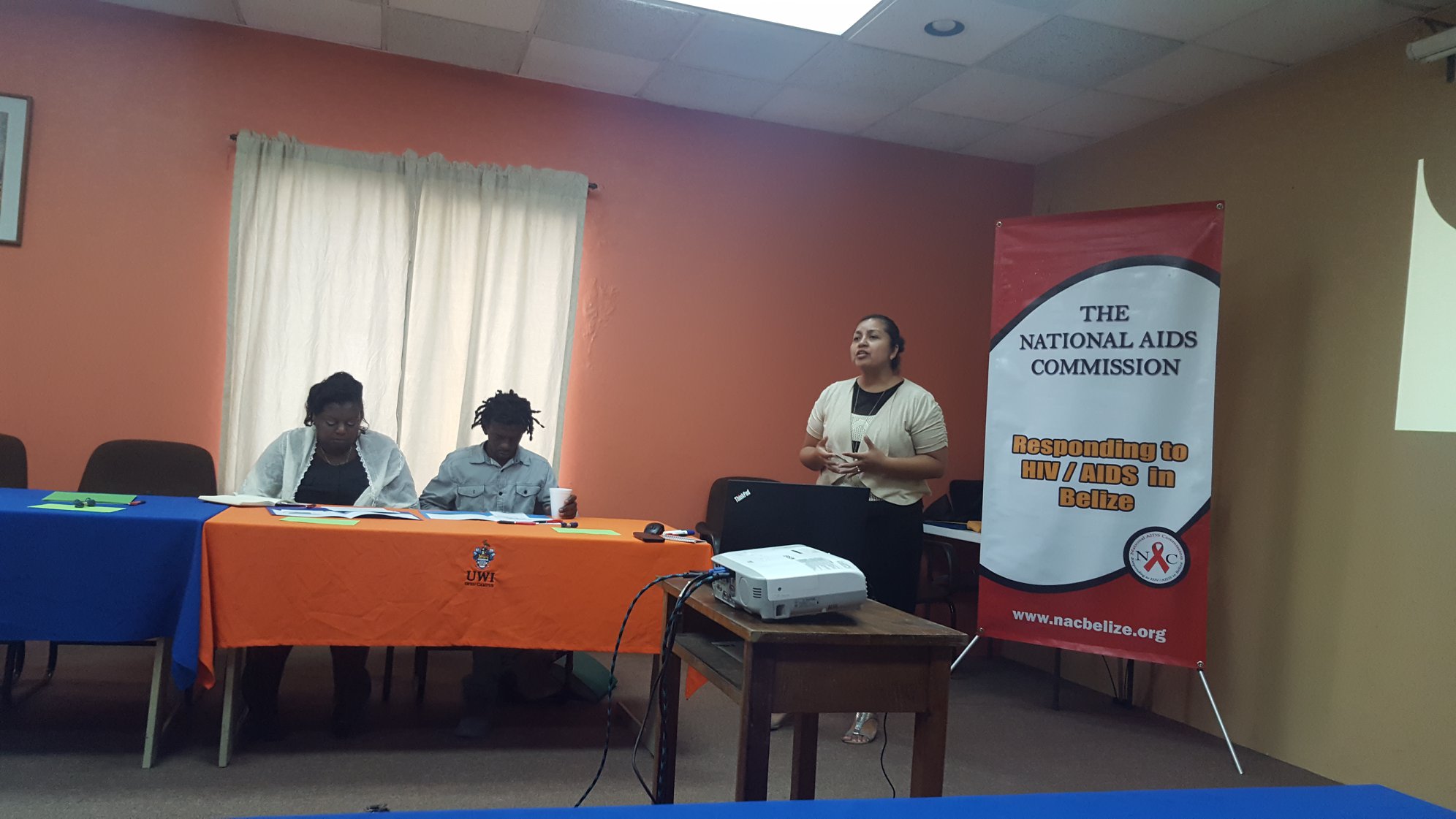
NAC (Belize) engages Civil Society Organizations in 1-day Capacity Building SessionIntervention focused on enhancing the country’s multi-sector approach to the HIV epidemic
Image: Dr. Minerva Pinelo, Communications Specialist, facilitator of the capacity building training for CSOs in Belize
The National AIDS Commission (NAC) Belize engaged Civil Society Organizations (CSO) in a one-day capacity building and development session intended to promote and improve the quality of key CSO participation while enhancing and operationalizing each organization’s program profile. The session was held at the University of the West Indies Conference Room in January.
The one-day session focused on enhancing the country’s multi-sector approach to the HIV epidemic, and developing the CSO’s ability to create targeted, program-centric impact in achieving the 90-90-90 Goals (by 2020, 90% of all people living with HIV will know their HIV status, 90% of all people with diagnosed HIV infection will receive sustained antiretroviral therapy, 90% of all people receiving antiretroviral therapy will have viral suppression).
The sessions built the capacity of each organization to recognize and assess their relevance and role within the national response to HIV and how that translates into positive targeted action that will create change. Participants were asked to assess themselves based on their mandates, visions, and missions as well as identify their specific target audience in relation to the national agenda and goals. This fostered inter-agency collaboration within the CSO community of Belize and allowed each organization to identify their specific niche within the national response to HIV.
The sessions were facilitated by Dr. Minerva Pinelo, Communications Specialist and coordinated by the NAC Secretariat. The NAC will continue to assist CSOs in their individual and collective work with the overarching aim of elevating the national HIV response.
WHAT IS PANCAP?
PANCAP is a Caribbean regional partnership of governments, regional civil society organisations, regional institutions and organisations, bilateral and multilateral agencies and contributing donor partners established on 14 February 2001. PANCAP provides a structured and unified approach to the Caribbean’s response to the HIV epidemic, and coordinates the response through the Caribbean Regional Strategic Framework on HIV and AIDS to maximise efficient use of resources and increase impact, mobilise resources and build the capacity of partners.
What are the Global AIDS Strategy 2021–2026 targets and commitments?
If targets and commitments in the strategy are achieved:
- The number of people who newly acquire HIV will decrease from 1.7 million in 2019 to less than 370 000 by 2025
- The number of people dying from AIDS-related illnesses will decrease from 690 000 in 2019 to less than 250 000 in 2025.
- The goal of eliminating new HIV infections among children will see the number of new HIV infections drop from 150,000 in 2019 to less than 22,000 in 2025.
What are the 95-95-95 Targets for ending AIDS?
- 95% of People Living with HIV know their HIV status;
- 95% of people who know their status on treatment; and
- 95% of people on treatment with suppressed viral loads.
HELPFUL LINKS:
Global AIDS Strategy 2021–2026, End Inequalities, End AIDS
https://pancap.org/pancap-documents/global-aids-strategy-2021-2026-end-inequalities-end-aids/
Caribbean Regional Strategic Framework on HIV and AIDS (CRSF) 2019-2025
https://pancap.org/pancap-documents/caribbean-regional-strategic-framework-2019-2025/
